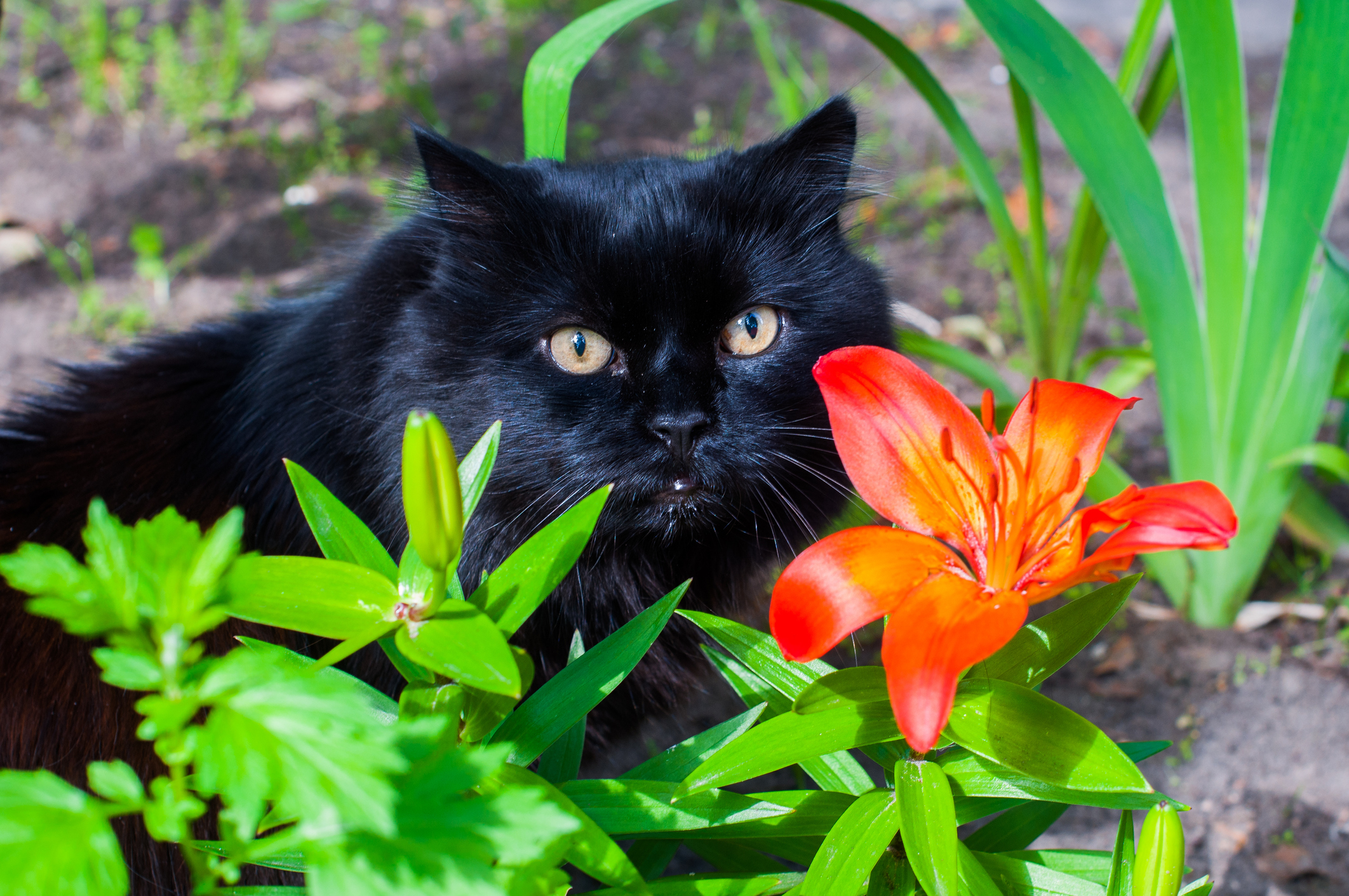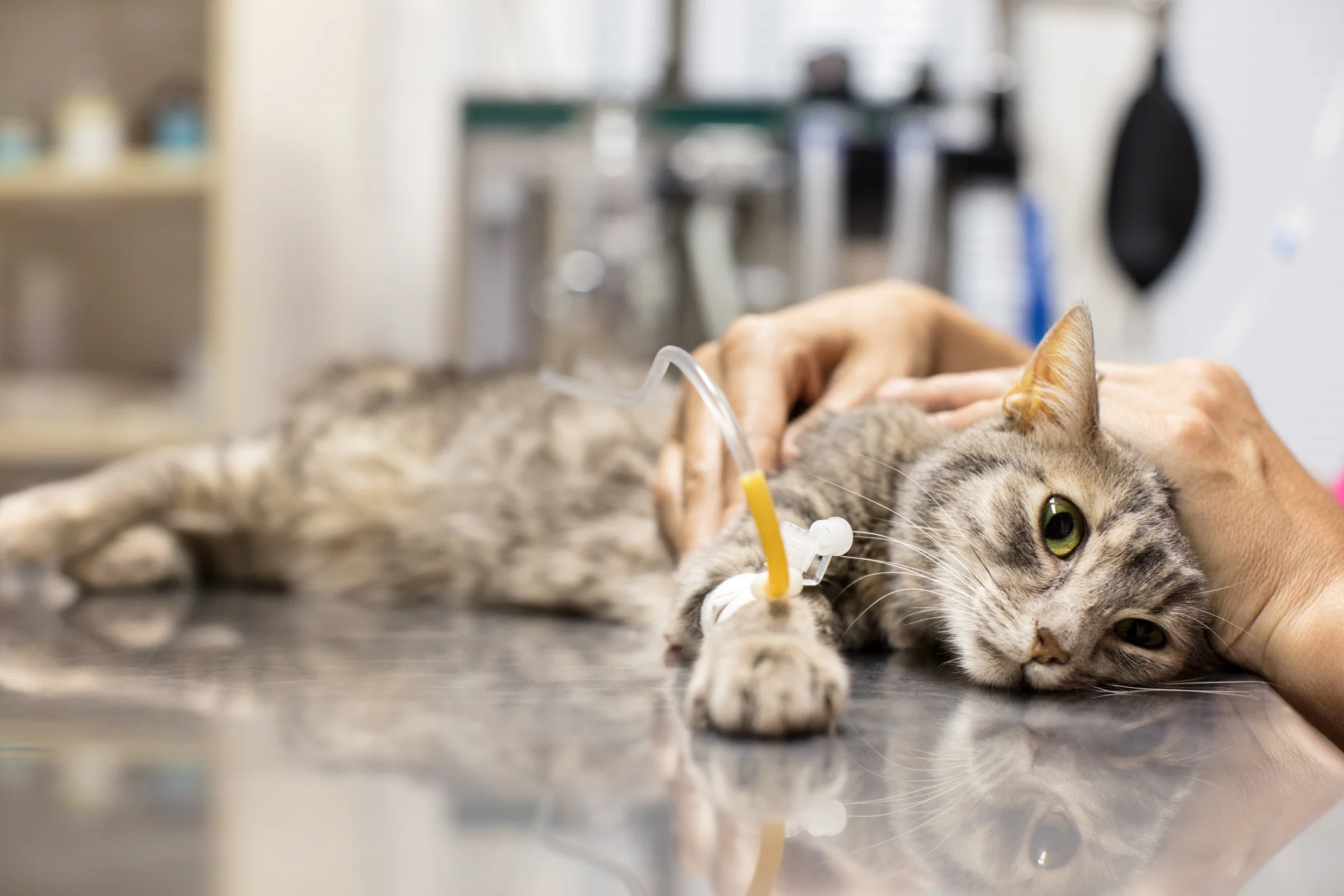Pet Blog > Has your cat been poisoned?
Has your cat been poisoned? Act Fast!
Cats are known as cautious animals; however, they are also curious creatures and likely to make mistakes. Due to this natural curiosity, your whiskered friends may accidentally get poisoned sampling "treats" outside of his food bowl.
Cats are sensitive to several toxic agents, often in ways that are unique to their species. Also, cats are considerably less likely than dogs to expose themselves through curious ingestions. However, cats are prone to nibble on potentially lethal agents, like lilies. Common medications, household plants, insecticides, and some human food products can easily poison your cat. Depending on the kind of toxic substance, a cat may quickly go into shock, have seizures, and losing consciousness within just a couple of hours. A few factors predispose cats to quickly becoming ill once they ingest a poisonous substance, such as their small body size.
When in doubt, contact the ASPCA Animal Poison Control Center at (888) 426-4435 and your own veterinarian.
Quick link: Emergency Vet Near Me
If you see your feline ingest a product you know to be toxic to cats, you should seek medical attention before the poison spreads throughout the body. You will often hear people citing that their cat ate rat poison or their cat drank bleach. Nuances like this are why poison control for cats is essential to your cat's safety.
In some cases of cat poisoning, the poison is unknown. But, there are a lot of substances within your home that are potentially poisonous to your feline. Some of these are fatal poisons for cats.
Rat Poison
Deodorants
Disinfectants
Aspirin
Antifreeze
Carpet cleaners
Brake fluid
Nail polish
Paint remover
Varnish
Chocolate
Tulips and daffodils
Lilies
Symptoms of a Cat Being Poisoned
The symptoms and signs of poisoning in cats depend on the active ingredient that the toxin contains. However, most poisons will cause neurological changes, gastrointestinal distress, and labored respiratory signs.
Some poisons would have an immediate effect upon swallowing, while others might take several days to manifest their symptoms. Symptoms that a cat may have been poisoned are:
Increased drinking
Increased urination
Coughing
Labored breathing
Sneezing
Tremors and seizures
Coma
Skin swelling
Pale gums
Signs of liver failure, like jaundice
Diagnosing Cat Poisoning
Your vet will be able to deduce the diagnosis of poisoning in your cat rather quickly, mainly based on physical symptoms and signs.
Your veterinarian will conduct a complete physical examination, which includes evaluating the shape and size of the internal organs and checking the neurologic, respiratory, cardiovascular, and urinary systems. While tests will vary depending on the poison, they may include the following:
Biochemical profile, urinalysis, and complete blood count to evaluate organ function and identify abnormalities in typical values
Blood clotting profiles
Imaging, like x-ray or ultrasound, might be required to look for any foreign objects that may have been consumed
If a snake has bitten your feline, a snake venom test kit will help your vet identify the type of snake
If you have seen the poisoning or suspect what the toxic substance could be (for example, a chewed plant or chocolate), you should bring the product label, box, wrapper or sample of the item to your veterinary office.
He may also use ultrasound to look at the kidneys and liver, which are usually severely affected by toxic substances. In a few cases, your vet might order IV fluids and specific medication to offset the effects of the poison. In other cases, your vet may induce vomiting and perform gastric lavage (stomach pumping).
He may also give your cat activated charcoal in an attempt to remove or absorb some of the toxins still present in your cat's system.
Treatment
Treatment of poisoning in cats often depends on the kind of toxin your feline came into contact with.
If your vet identifies the poison, he may be able to administer an antidote. However, keep in mind that not all cat poisons have antidotes.
If there is no antidote or uncertainty in the cause, your vet will treat the symptoms to help maintain your cat's normal organ function until the poison is out of his system.
Your veterinarian may use any or all of the following treatments:
Activated charcoal administered orally to absorb any toxin remaining in the gut
Induce vomiting
Give anti-seizure medication
Various medications to alleviate symptoms
Intravenous fluids
Repeated testing to monitor your cat
Endoscopy or surgery may be necessary for cats that have ingested solid products or caustic substances which he cannot pass via vomiting.
Post Treatment Care
After treatment, keep your cat safe by:
Keeping all chemicals out of the reach of your cat
In case you have houseplants, making sure they aren't toxic to your cat
Not feeding your cat any human foods
Storing human medications separately
Following guidelines on tick or flea products
Depending on the specific toxin, your vet will likely recommend that you bring the cat in for follow-up exams or tests. You should inform him if any symptoms reappear.
Average Cost of Treatment
The average cost of treatment will depend on the toxin involved and the size of your cat. For example, the cost to treat antifreeze poisoning in cats can range from $750 to more than $6,000 with an average cost of around $600.
Perhaps your cat is curious and ingests some medications lying on your bathroom counter? Treatment for cat poisoning from human medications can cost between $250-$2,000.
Final Thoughts
The best home care for your cat is prevention. You should keep all potential poisons and toxic substances safely and securely. And do not allow your cat to roam too freely. The best thing you can do is keep your cat indoors to limit exposure to toxic substances. Ask your vet about poisoning in cats for future reference and find out who you must call, as well as home tips and remedies you can use in an emergency.
Check out the other “Cats Blog” articles
Return to the Pet Blog


